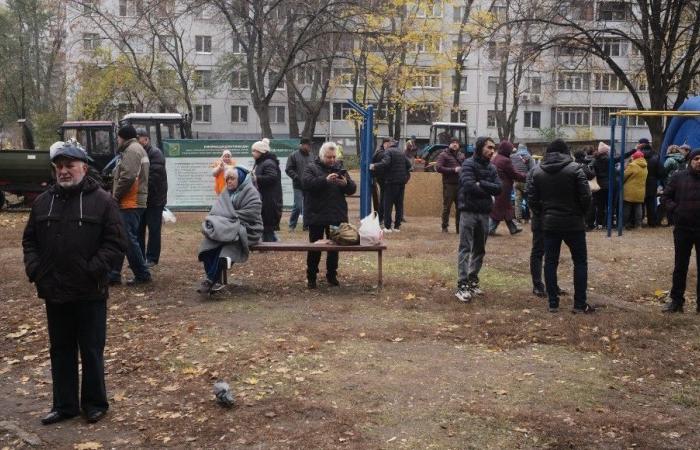A Ukrainethe country is preparing for a winter that promises to be difficult: Sunday November 17, 2024, Russia began its strikes against the country's energy infrastructure and, now, 65% of the country's production capacities are destroyed. In the north of Kharkiv, Vitali struggles to open his door. This retiree's house was seriously damaged by a warhead, which fell in August 2024 about thirty meters away. “This door is completely ruined, there are drafts going everywhere“, he said.
In the corridor, Vitali, disappointed, shows us the polystyrene blocks which block the holes in the walls. Outside, the first snowflakes are starting to fall. “Winter is coming, and I have no money to repair my house. If the Russians turn off the heat, I don't know what will become of me“, worries Vitali.
“Russian attacks leave residents without heat or electricity”
After three years of war, Russia has made a habit of targeting energy infrastructure to paralyze the economy and demoralize the population. “Russian attacks leave residents without heat and electricity, not only in the Kharkiv region, but across the country“, explains Ievgen Ivanov, deputy governor of the military administration of the Kharkiv region. “Believe me, no defense in the world, even the best air defense system, can protect against dozens of ballistic or cruise missiles. Especially close to the front“, he continues.
In her apartment on the 9th floor of a Soviet building, Irina unpacks her bags in front of us, piled up near the door: “We are ready to flee. I have everything I need to last several days: change of clothes, medicine, food“.
“Everything has become very expensive, the subsidies I receive are not enough”
Around the city, the war has thrown the countryside and its inhabitants into precariousness. Larissa is a veteran, returning home after two and a half years near the front. She fears not having the means to heat herself throughout the winter. “Prices have increased enormously, on absolutely everything: products, heating, wood. Absolutely everything. Even medicines explains Larissa. Everything has become very expensive. The subsidies I receive, which are very, very low, are not enough to pay for gas“.
In the hearth of his living room, a fire of briquettes, delivered by an NGO, warms the room. Next to the portrait of her brother, killed in combat, Larissa hopes to be able to regain her strength this winter. Next spring, she plans to return to the front.
A report by Stanislas Poyet, edited by Diane Warin.






